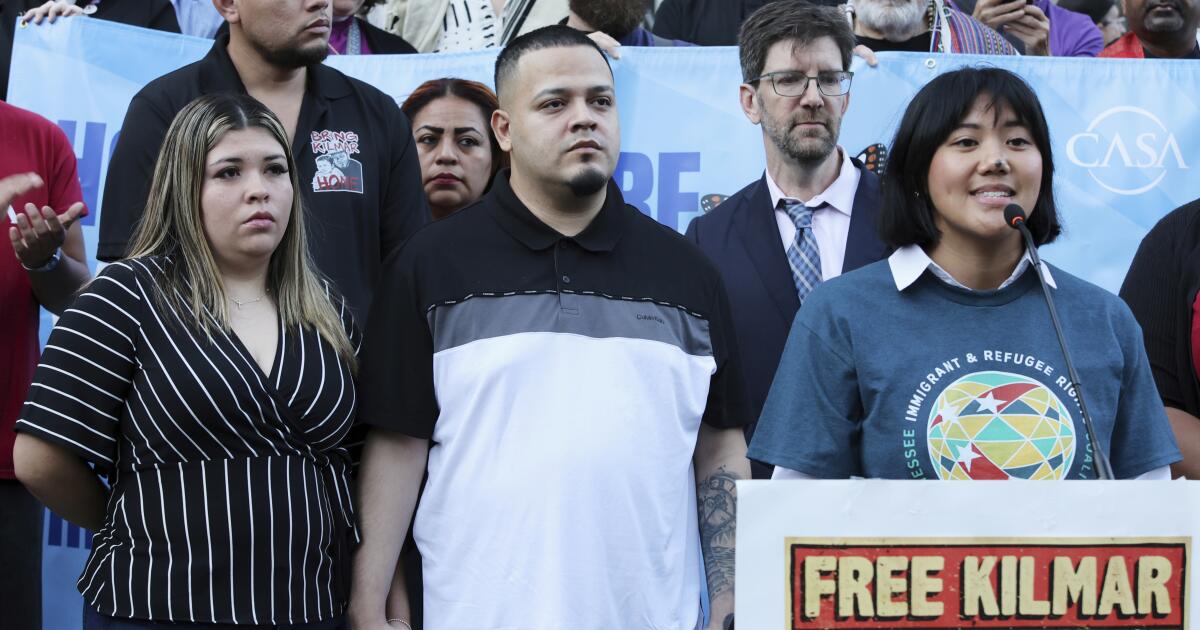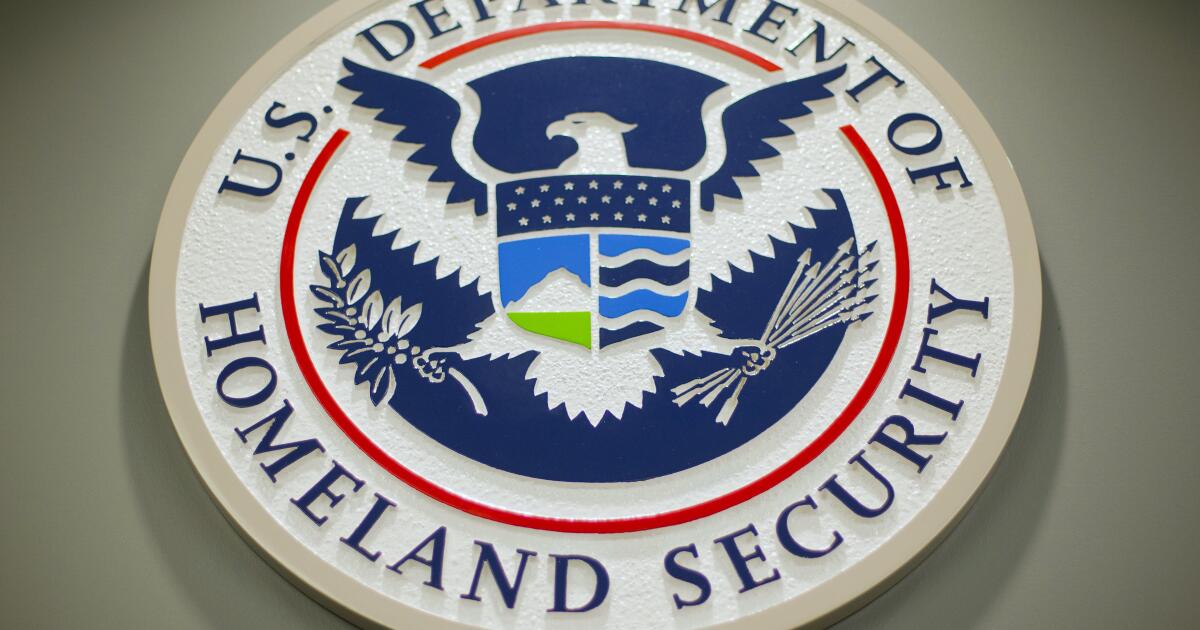Kilmar Abrego Garcia requests asylum in the U.S., hoping to prevent his deportation to Uganda
WASHINGTON — Kilmar Abrego Garcia, whose case has come to encapsulate much of President Trump’s hard-line immigration agenda, wants to seek asylum in the United States, his lawyers told a federal judge Wednesday.
Abrego Garcia, 30, was detained Monday by U.S. Customs and Immigration Enforcement in Baltimore after leaving a Tennessee jail on Friday. The Trump administration said it intends to deport him to the African country of Uganda.
Administration officials have said he’s part of the dangerous MS-13 gang, an allegation Abrego Garcia denies.
The Salvadoran national’s lawyers are fighting the deportation efforts in court, arguing he has the right to express fear of persecution and torture in Uganda. Abrego Garcia has also told immigration authorities he would prefer to be sent to Costa Rica if he must be removed from the U.S.
A request for asylum in 2019
A U.S. immigration judge denied his request for asylum in 2019 because he applied more than a year after he had fled to the U.S. He left El Salvador at the age of 16, around 2011, to join his brother, who had become a U.S. citizen and was living in Maryland.
Although he was denied asylum, the immigration judge did issue an order shielding Abrego Garcia from deportation to El Salvador because he faced credible threats of violence from a gang there that had terrorized him and his family. He was granted a form of protection known as “withholding of removal,” which prohibits him from being sent to El Salvador but allows his deportation to another country.
Following the 2019 ruling, Abrego Garcia was released under federal supervision and continued to live with his American wife and children in Maryland. He checked in with ICE each year, received a federal work permit and was working as a sheet metal apprentice earlier this year, his lawyers have said.
But in March, the Trump administration deported Abrego Garcia to a notorious El Salvador prison, alleging he was a member of MS-13.
The allegation stems from a day in 2019 when Abrego Garcia sought work as a day laborer at a Home Depot in Maryland. Authorities had been told by a confidential informant that Abrego Garcia and other men could be identified as members of MS-13 because of their clothing and tattoos. He was detained by police, but Abrego Garcia was never charged — and has repeatedly denied the allegation. He was turned over to ICE and that’s when he applied for asylum for the first time.
Wrongful deportation and return
The Trump administration’s deportation of Abrego Garcia in March violated the immigration judge’s 2019 order barring his removal to El Salvador. Abrego Garcia’s wife sued to bring him back. Facing mounting pressure and a U.S. Supreme Court order, the Trump administration returned Abrego Garcia to the U.S. in June, where he was charged with human smuggling, a federal offense.
Abrego Garcia is accused of taking money to transport people who were in the country illegally. He has pleaded not guilty and asked the judge to dismiss the case, saying it was filed to punish him for challenging his deportation.
The charges stem from a 2022 traffic stop for speeding in Tennessee. There were nine passengers in the SUV and Abrego Garcia had $1,400 in cash on him. While officers discussed among themselves their suspicions of smuggling, he was allowed to drive away with only a warning.
A Homeland Security agent testified that he didn’t begin investigating until this April, when the government was facing mounting pressure to return Abrego Garcia to the U.S. The trial is set for January.
A federal judge in Tennessee released Abrego Garcia from jail on Friday after ruling that he was not a flight risk or a danger. The Trump administration moved to deport Abrego Garcia again on Monday, alleging he is a danger.
Abrego Garcia then stated his intent to reopen his immigration case in Maryland and to seek asylum again, his lawyers said Wednesday. Asylum, as defined under U.S. law, provides a green card and a path to citizenship. Abrego Garcia can still challenge his deportation to Uganda, or any other country, on grounds that it is unsafe.
Abrego Garcia’s lawyers say sending him to Uganda would be punishment for successfully fighting his deportation to El Salvador, refusing to plead guilty to the smuggling charges and for seeking release from jail in Tennessee.
Judge keeps Abrego Garcia in the U.S., for now
Abrego Garcia’s attorneys have filed a federal lawsuit to ensure that he can exercise his constitutionally protected right to fight deportation. He is entitled to immigration court proceedings and appeals, his lawyers say.
U.S. District Judge Paula Xinis in Maryland, who is overseeing the lawsuit, has ruled that the U.S. government cannot remove Abrego Garcia from the country as the lawsuit plays out.
Justice Department attorney Drew Ensign said the government disagrees with the court’s order not to remove him while the lawsuit is pending but that it will comply.
Xinis will not rule on whether Abrego Garcia receives asylum or is deported, but will determine whether he can exercise his right to contest deportation. His asylum case will be heard by a U.S. immigration judge, who is employed by the Department of Justice under the authority of the Trump administration.
The nation’s immigration courts have become a key focus of Trump’s hard-line immigration enforcement efforts. The president has fired more than 50 immigration judges since he returned to the White House in January.
Abrego Garcia’s lawyers have said he’ll be able to appeal immigration court rulings to the U.S. Court of Appeals.
Kunzelman and Finley write for the Associated Press. Finley reported from Norfolk, Va. AP writer Elliot Spagat contributed to this report.

